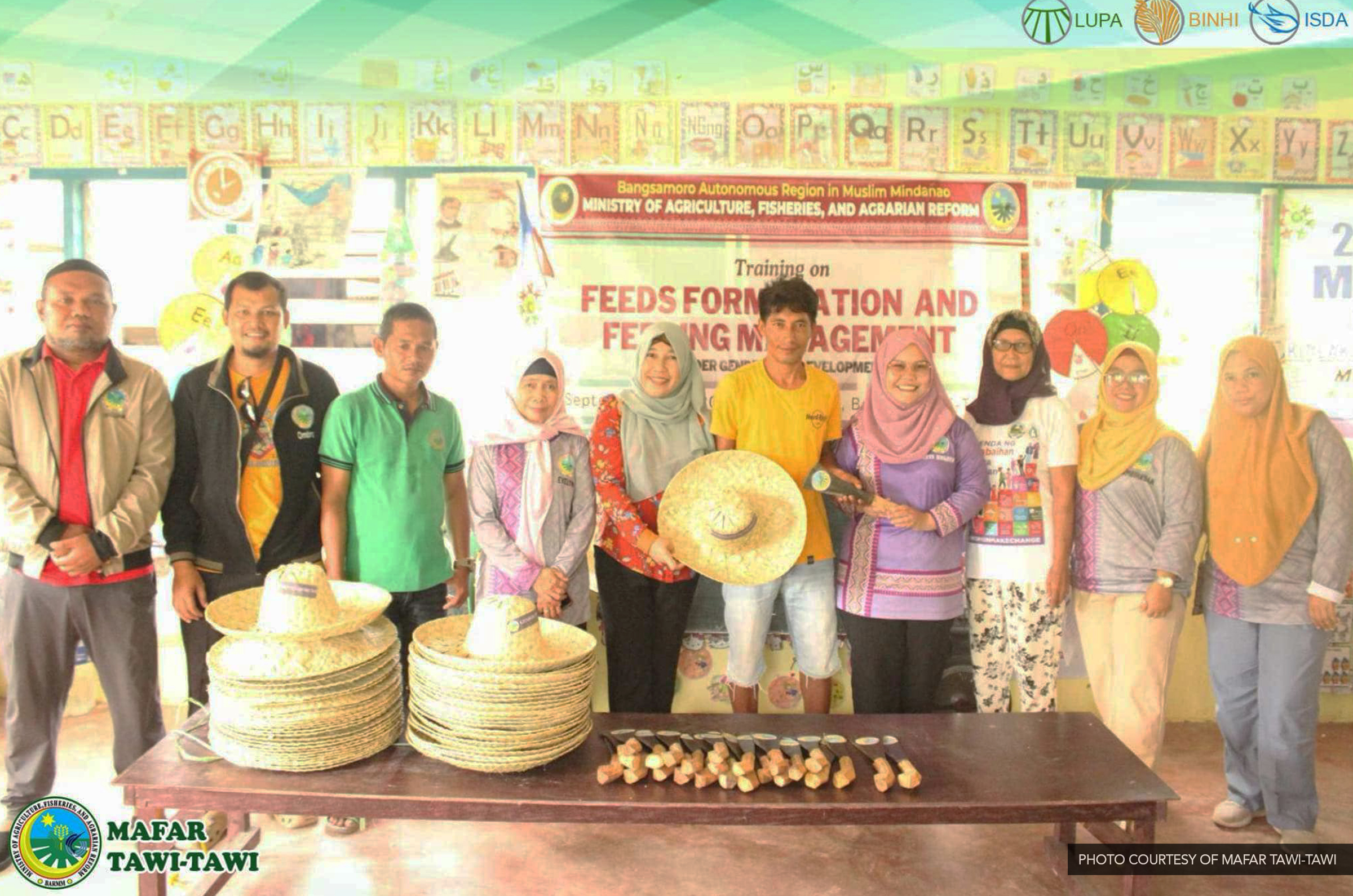BONGAO, Tawi-Tawi – As part of the Bangsamoro Government’s commitment to advancing agri-fishery productivity and food security, the Ministry of Agriculture, Fisheries, and Agrarian Reform (MAFAR) Tawi-Tawi Provincial Office held a two-day training workshop for local farmers on feed formulation and feed management at Barangay Lakit-Lakit on September 14-15, 2024.
Fifty (50) local farmers underwent the training, which sought to address the challenges they face in chicken raising, particularly in feed management. According to MAFAR, small-scale farmers often struggle with expensive commercial feeds and lack of knowledge in feed formulation which lead to poor chicken health, reduced productivity, and high maintenance cost.
The training focused on teaching farmers how to create their own nutrient-rich feeds using locally available materials which will empower them to reduce production costs, improve livestock nutrition, and ultimately increase egg and meat production.
MAFAR Tawi-Tawi’s Agriculture Division’s Livestock and Poultry Management Section organized the training under its Gender and Development (GAD) Program.
Dr. Aidarus Nami, Provincial Director of MAFAR, emphasized the significance of such initiative, stating, “Empowering our farmers through proper training is a step toward sustainable agricultural development, MAFAR will continue to support programs to improve productivity and uplift the farming community.”
Meanwhile, GAD Focal Person Ms. Sitti Kulsum Hairol highlighted the dual benefits of the training: “This program not only addresses the technical needs of our farmers but also ensures that both men and women benefit from agricultural advancements, strengthening the role of gender inclusivity in rural development.”
Evelyn Martinez, alternate GAD focal of MAFAR Tawi-Tawi, also reiterated the Ministry’s commitment to gender equality in agricultural programs, emphasizing that all community members should have equal access to quality resources and progressive opportunities under the MAFAR’s programs.
Dr. Satra Sabaani, Dean of the Institute of Agriculture Science of Tawi-Tawi Regional Agricultural College, shared her expertise and extensive agricultural knowledge on practical approaches to feed formulation. She highlighted the importance of applying academic knowledge in practical, actionable ways that small-scale farmers can implement. (Laila Aripin/BIO with reports from MAFAR Tawi-Tawi)








